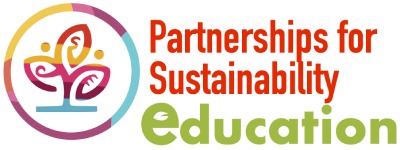Global Summit 2020
The Need to Implement Climate Change Education
Over 30 years now, scientists have been constantly providing credible research data and warnings that climate change is threatening humanity’s existence. Yet the urgency to take the necessary steps to address this has been too long delayed. This is especially true in the field of education.
To counter the effects of climate change, revolutionary changes including a shift in lifestyles, thinking, and decision-making are required. Education is key in this cultural transformation that can only be achieved by instilling in our learners proper knowledge, attitudes, and values.
Ironically, students have been the ones leading the fight against the climate crisis. The global education community, headed by education officials and school and university leaders, has taken a more passive role amidst the call for climate action. The seeming shaky commitment “to advance wide-scale education efforts for, by, or with K-12 children and youth in school settings around the world” is said to be reflective of the global education community’s lack of a united vision for education in a climate-altered world. This despite research evidence showing that students do care about the environment, want their schools and universities to be taking actions on climate change and that they demand to learn sustainable development in the classrooms. The UK Students Climate Network, in fact, has been demanding its government to include in the school curricula the teaching of climate change specifically, “the urgency, severity and scientific basis of the climate crisis.”
This is not to say that there have been no climate change education initiatives forwarded by schools and universities. In fact, there have been a number of successful programs positively affecting school life and the personal lives of students, teachers, staff, and their families. A groundbreaking initiative was recently made by Italy and Mexico when they initiated compulsory climate change education in their respective countries to engage children and youth in the solutions to climate change. The governments believe that every country should make sustainability education an integral part of their national and international response to the climate crisis. Nevertheless, educators should recognize that these efforts have been too little, sparse, and have yet to trickle into the average classroom if we want to ensure that schools develop climate-ready citizens and responsible stewards of the environment for the present and future generations.
Climate change is an interactive and complex problem that if not addressed could undermine everything that educators and concerned citizens have worked for in education. Finding solutions to the climate crisis cannot be left alone to leaders of international organizations, the government, businesses, civil society, and the youth. The education sector should take the lead and actively push for the development and implementation of climate change education including climate adaptation and resilience programs in every school in every nation. The world is facing an emergency and this climate crisis needs ground-level collaboration that should involve all individuals and all organizations, including schools and universities around the globe.

